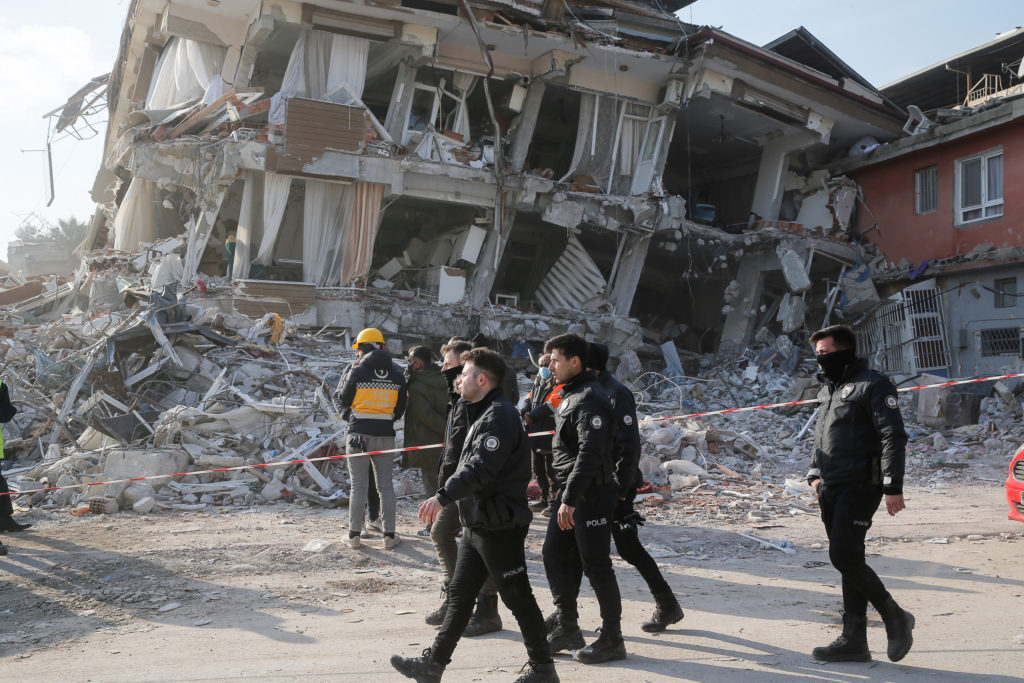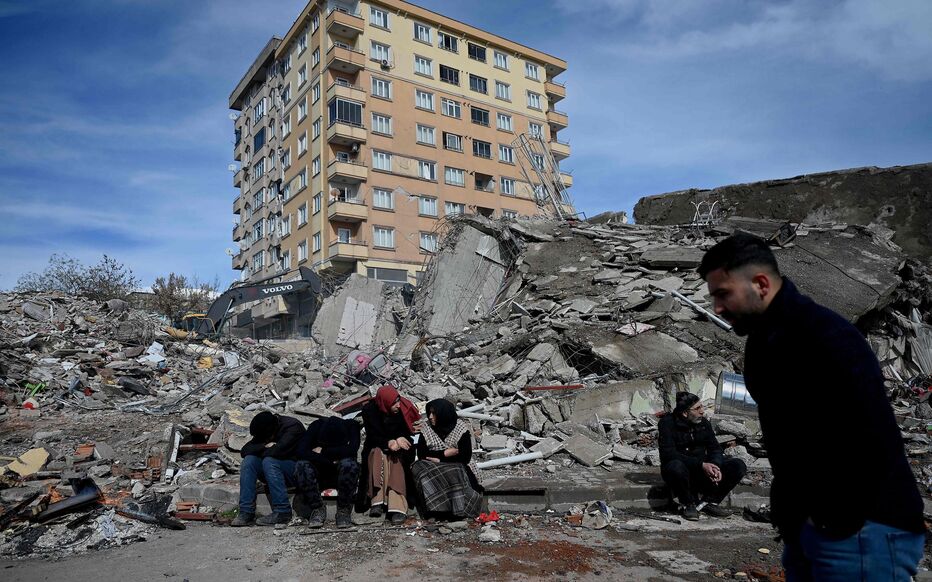At least 134 investigations have been launched after the earthquake in Turkey against developers who allegedly failed to comply with building regulations.
Their photo is everywhere: that of the promoter arrested while trying to flee at Istanbul airport on Friday and of his two accomplices, whose heads are demanded by Internet users. Mehmet Yasar Coskun was the client of the “Rönesans” (Renaissance) residence, built in Antakya, in southern Turkey, 10 years ago: on February 6, the eight-storey building and 250 apartments with swimming pool, which notably housed Ghanaian footballer Christian Atsu, tipped on its side and on its inhabitants.
It is one of thousands of buildings in Turkey that have collapsed on themselves, leaving no chance for their occupants seized in their sleep by the violent tremor that occurred at 4 a.m. Faced with the anger that rumbles in the country against the construction mafias, relayed by the press and social networks, the Turkish authorities have reacted promptly and arrests and arrest warrants are raining down.
Earthquake in Turkey : 134 investigations launched
On Sunday, seven days after the disaster that killed nearly 30,000 people in Turkey alone, three people were imprisoned, seven arrested including two other promoters who were trying to escape to Georgia, and 114 are still wanted, announced the Turkish Minister of Justice, Bekir Bozdag. A total of 134 investigations were launched. The fate of the Renaissance residence has become emblematic of these bad practices long denounced in the country, but it is far from being the only one.
Thus the Isias hotel, in Adiyaman, where 35 members of the 12-15 year old volleyball team of the separatist republic of Northern Cyprus and their management perished: witnesses told the NTV television channel that the hotel had been closed due to “irregularities” in the construction, before having the seals broken and reopening. “I want these people to be judged, they are murderers,” said a relative of a victim interviewed, while another claimed to have seen “the walls torn like sheets of paper”.
Lessons learned from the 1999 earthquake in Turkey
In his deposition, the developer of the Renaissance residence rejected the charges against him and his associates. “I don’t know why the building collapsed. All the permits had been issued after the studies carried out by the town hall and the control company,” he said. The permit for this residence was signed in 2021 by Ekinciler District, Hatay. Turkey has adopted a series of standards and regulations modeled on those of earthquake-prone California, and regularly revised – the last time in 2018. But according to engineers and architects interviewed this week, most are being ignored by builders.
The government’s reaction to what President Recep Tayyip Erdogan, on the campaign trail if the May 14 elections are held, has called Turkey’s “worst disaster ever” is unprecedented. Until then, crooked developers and contractors seemed to have a bright future ahead of them despite repeated warnings from recognized engineers and architects.
After the violent earthquake of 1999 in Turkey, which killed 17,000 in the north-west of Turkey, around Kocaeli, it took six months before the first arrest. The daily Milliyet then headlined “Only eight arrests for 17,000 lives lost”. Subsequently, more than 2,000 proceedings were opened against the promoters of the collapsed buildings, but no sentence was pronounced for 1,800 of them because of a general amnesty decreed in December 2000 by the government. Finally, most of those responsible had been able to benefit from a prescription in 2007.



Comments are closed